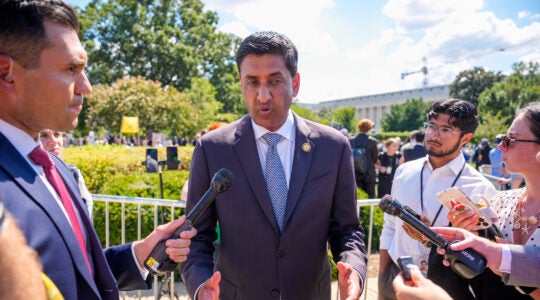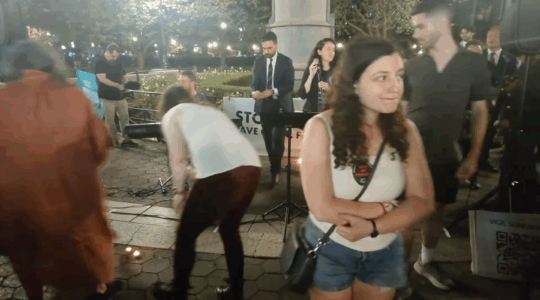Newly unsealed court records and trial testimony show that top Trump administration officials relied heavily on Canary Mission, a controversial website that targets pro-Palestinian activists, as part of a secretive effort to deport foreign students and academics from American universities.
The revelations emerged during an ongoing federal lawsuit in Boston brought by the American Association of University Professors and the Middle East Studies Association, challenging what they call “ideological deportations” that they say violate First Amendment rights. The case is one of the most closely watched challenges to President Donald Trump’s deportation efforts.
A Department of Homeland Security “tiger team” formed in 2019 built dossiers on thousands of noncitizen academics and students by pulling names from a public list of 5,000 individuals compiled by Canary Mission, according to Politico’s reporting on the trial. The site, which publishes profiles of pro-Palestinian activists, often under the accusation of antisemitism, became a primary resource for the team, according to sworn testimony from DHS official Peter Hatch.
Hatch, the assistant director for intelligence at Homeland Security Investigations, testified that more than 75% of the deportation referrals prepared by his unit were based on names first identified through Canary Mission, adding that the information was independently verified before being compiled into official reports, according to Politico.
“Many of the names or even most of the names came from that website, but we were getting names and leads from many different websites,” Hatch said. “We received information on the same protesters from multiple sources, but Canary Mission was the most inclusive. The lists came in from all different directions.”
“Canary Mission is not a part of the U.S. government,” he said. “It is not information that we would take as an authoritative source. We don’t work with the individuals who create the website. I don’t know who creates the website.”
Trump officials cited another pro-Israel outside group as a key source of intelligence: Betar USA. The right-wing Zionist group that has taken a confrontational stance toward Muslim and pro-Palestinian student organizations claimed earlier this year that it provided the government with a list of targets for deportation. In February, the Anti-Defamation League added Betar USA to its list of extremist groups, citing its open Islamophobia and alleged harassment of pro-Palestinian activists.
Canary Mission did not respond to a request for comment from the Jewish Telegraphic Agency, but in a statement to Politico, it denied collaborating with any government agencies, insisting that its goal is solely to document antisemitism and anti-Israel sentiment.
“We document individuals and groups that promote hatred of the USA, Israel and Jews. We investigate hatred across the political spectrum, including the far-right, far-left and anti-Israel activists,” the group said.
Critics say the group’s anonymous structure and doxxing tactics have created a climate of fear on college campuses.
This week’s trial testimony also shed light on the role of top Trump advisor Stephen Miller in the deportation campaign. Officials testified that Miller, who is Jewish, was regularly involved in interagency meetings focused on deporting pro-Palestinian students.
John Armstrong, acting chief of the State Department’s Bureau of Consular Affairs, testified he had “at least a dozen” conversations with White House officials about the deportation initiative, according to Politico.
Armstrong confirmed that Miller participated in interagency conference calls “at one point at least weekly,” with calls lasting between 15 minutes and an hour, often including officials from the State and Homeland Security departments.
In the months since Trump took office, immigration authorities made several splashy arrests of high-profile pro-Palestinian student activists. None was accused of a crime, and all have since been freed from detention under order by judges who said their arrests were likely to be unconstitutional.
JTA has documented Jewish history in real-time for over a century. Keep our journalism strong by joining us in supporting independent, award-winning reporting.






